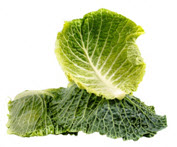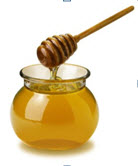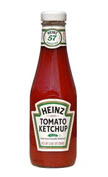Compliments of :
RoseanneMacDonald
Entrepreneur, EliteTransitions
Phone:(807)355-3509
Seniors Tip: Top 10 Germiest Objects to Avoid
Joke or Quote of the Month:Do More
Heart Healthy Recipe:Roasted Figs with Honey
Did You Know? Empower Others to Protect Yourself
Micro-Nutrients are Essential for Seniors
 As we age our diet changes: a slower, more sedentary lifestyle requires fewer calories. But some things don’t reduce – and our need for micro-nutrients and vitamins actually increases. What follows is by no means exhaustive, but this is the Top Five according to the Institute of Medicine. As with any supplement, consult your GP first.
As we age our diet changes: a slower, more sedentary lifestyle requires fewer calories. But some things don’t reduce – and our need for micro-nutrients and vitamins actually increases. What follows is by no means exhaustive, but this is the Top Five according to the Institute of Medicine. As with any supplement, consult your GP first.
#5 Folate (or Folic Acid) is an essential B vitamin whose deficiency causes anemia. Most breakfast cereals are now fortified with folate, so deficiencies in children are less common. But older people whose diets don’t include a lot of fruits and vegetables or fortified breakfast cereals may require a supplement.
#4 Vitamin B12 is important for creating red blood cells and for maintaining healthy nerve function. Seniors are doubly affected, firstly because B12’s absorption slows down considerably after age 50.
Secondly, seniors tend to eat less of those foods rich in B12 (fish, meat, poultry, eggs, milk, and yogurt). Up to 30% of seniors are deficient in B12, so it is recommended that 100 to 400mcg be taken daily as a supplement.
#3 Magnesium is required for calcium metabolism, however its absorption decreases with age, which can further accelerate bone loss. Magnesium is contained in many whole foods, especially fresh vegetables. A supplement of 100mg/day may be required if you are on a diet high on processed, tinned or frozen food or eating packaged meals. Note: an excess can cause kidney problems.
#2 Vitamin D helps the body absorb calcium, prevents osteoporosis and maintains bone density and muscle strength. It may also protect against type 1 diabetes, rheumatoid arthritis, multiple sclerosis, cancer, auto-immune diseases and falling caused by muscle weakness. Shut-in seniors especially suffer from vitamin D deficiency, since it is produced by the skin when exposed to sunlight. The recommended daily amount for seniors is 800 IU.
#1 Calcium is essential for bone strength. As we age it leaches out of the bones and must be replaced, especially for post-menopausal women, or bones will become brittle. It’s unfortunate but true that this leaching coincides with a much lower consumption of calcium in our diets – a double-whammy.
The best source of calcium is not from supplements: it’s from milk, yogurt, kale and spinach. If you’ve cut back on those, then you are missing out and should probably be taking calcium supplements. 1200 mg/day from food and supplements is just right: Too much however is dangerous: more than 2500 mg/day can affect kidney and muscle function.
We don’t think of water as a nutrient, but our bodies will shut down if we don’t get enough. What is enough? Well the experts say 4 large glasses per day, but a better guide is the colour of your pee. If it’s very pale yellow, that is good. Dark yellow or orange is too concentrated and a sign you’re not drinking enough water.
Health Canada recommends seniors avoid certain foods, especially those that naturally harbour bacteria, for example raw eggs & foods containing undercooked; unpasteurized milk & soft cheeses such as Brie, Camembert and blue-veined varieties; raw fish, oysters, clams and mussels, sushi and sashimi; fresh squeezed or unpasteurized juice; and raw or rare meat.
These micro-nutrients are critical for your health, so make sure you’re getting enough. Though it bears saying again: do check with your Doctor before you start taking supplements. (Recommendations and dosages are from the Institute of Medicine, www.IOM.edu)
Article by Alex Handyside, CPCA
Heart Healthy Recipe: Roasted Figs with Honey
Ingredients-8 fresh ripe black figs, 1 tbsp (15 mL) liquid local honey, 1 tbsp (15 mL) sliced hazelnuts or almonds, 2 tbsp (25 mL) crumbled goat cheese or ricotta (optional).
Directions-Cut figs in half almost all the way, leaving them still attached on one side. Place them open slightly in small casserole dish. Drizzle with honey and sprinkle with hazelnuts. Bake in 375° F (190° C) oven for about 15 minutes or until nuts are light golden and juices start to release from figs. Remove from oven and sprinkle with goat cheese if using. Tip: Enjoy warm or cold. Wrap leftovers with plastic wrap and refrigerate for up to 2 days.
Nutritional Information Per Serving (1 serving = 2 figs)-Calories 101, Protein 1 g, Total Fat 1 g, Saturated Fat 0 g, Cholesterol 0 mg, Carbohydrates 24 g, Fibre 3 g, Total sugars 21 g, Added sugars 4 g, Sodium 1 mg, Potassium 247 mg.
Recipe developed by Emily Richards, PH Ec. ©Heart and Stroke Foundation. Reprinted with Permission from Heart and Stroke Foundation.
Seniors Tip: Top 10 Germiest Objects to Avoid
Keeping our immune system strong is vital in the fight against flu germs this winter—and so is pinpointing the most likely places those little pathogens hang out. While many health professionals are reminding us to wash our hands more thoroughly and frequently—and to support your hard working immune system with supplements like Immunity-FX— still other researchers are sounding the alarm bell about detrimental behaviour that may not occur to us. For example, here are some everyday situations to avoid:
- Soap Dispensers: Most public containers are rarely cleaned and dirty-hands cause bacteria to grow exponentially as soap scum builds. Be sure to scrub hands vigorously for at least 20 seconds.
- Buttons: Tiny, but readily offensive on elevators, phones, vending and bank machines. Disinfect your hands immediately after use.
- Water Fountains: Since sick people are told to drink lots of water, a public fountain is often a germ depot. Research has shown that a spigot can carry twice as much bacteria as a toilet seat. Instead, take your own water with you.
- Shopping Carts: Ready potential to cross contaminate between the hands, face and food. E. coli bacterium is common, so wipe cart and hands with a sanitizer.
- Restaurant Menu: Germs can survive on a hard surface for 18 hours and menus are rarely cleaned. Keep them away from your plate and flatware and wash your hands once you’ve ordered.
- Ketchup: Since many people don’t wash their hands before eating, the condiment bottles can be crawling with germs. Do the job the eaterie should be doing and wipe them down with a sanitizer before use.
- Purses & Wallets: In public places, especially restrooms, place your purse on a chair or hook, not the floor. Paper money especially carries germs so wash your hands or sanitize after a purchase.
- Phones: Due to saliva, the mouthpiece is usually dirtier than the handle. If using any phone but your own, clean it first.
- Remote Controls: Did you know that a TV remote control is often the dirtiest object in a hotel room? Disinfect it at home and certainly when you travel.
- Laundry Machines: To kill germs effectively, especially in underwear, use very hot water and dry for a full 45 minutes. Without this, wet clothes can leave germs all over your hands.
Article by www.newscanada.com, Reprinted with permission from Senior Living Magazine, www.seniorlivingmag.com Reprinted by Request-Age-Friendly Business.
Did you know? Empower Others to Protect Yourself
As we get older it becomes more and more apparent that no matter how much we take care of ourselves and how much we try to avoid hardship, we cannot predict the possible obstacles that the future holds. By the age of 50, you have probably learned that even the best planned strategies need a back-up plan, especially when your loved ones are impacted. For example, what happens if you have a stroke, still able to take care of your physical needs but you find yourself spacing out mentally? This puts you in a vulnerable position to easily become taken advantage of by people targeting your savings. With no one empowered to act on your behalf, you could find yourself missing out on your whole life’s savings by no fault of your own. By the time this has happened, it is already too late, leaving you with little or no legal footing.
Here are some vital tips to take into consideration to protect you, your senior parents and family in the coming years.
- Your Will & Estate Plan – Make sure this is done as soon as possible to assure that you or your loved one is in good health to determine exactly where and how the assets will be passed.
- Power of Attorney – Find someone that is trust worthy to handle your account on your behalf? You should trust that this person will understand your wants/beliefs and will take your loved ones into consideration.
- A Living Will (advanced medical directive) – Assigning someone to take charge in case you find yourself totally or permanently incapacitated is vital. It is your life and you need to make it clear, in case of emergency, what type of health care treatment or support you would like to receive – and to what limits.
- Important Papers Packet – Put together all vital documents, including a comprehensive summery of your assets and benefits. This should have everything pertaining to your accounts and financial information included, such as your SIN number/card, insurance policies, medical alerts, physician information, health records, and titles or bills of any valuable property such land, automobiles or jewelry.
It is a daunting task dealing with the thought of something bad happening but by taking the time to properly plan out your ‘back up’ plan, you will be ensuring that you and/or your loved ones are protected when life becomes unpredictable.
Article by Steffany Gundling. Reprinted with permission from Senior Living Magazine, www.seniorlivingmag.com
Joke or Quote of the Month: Do More
“You must do the things you think you cannot do.”
Eleanor Roosevelt

